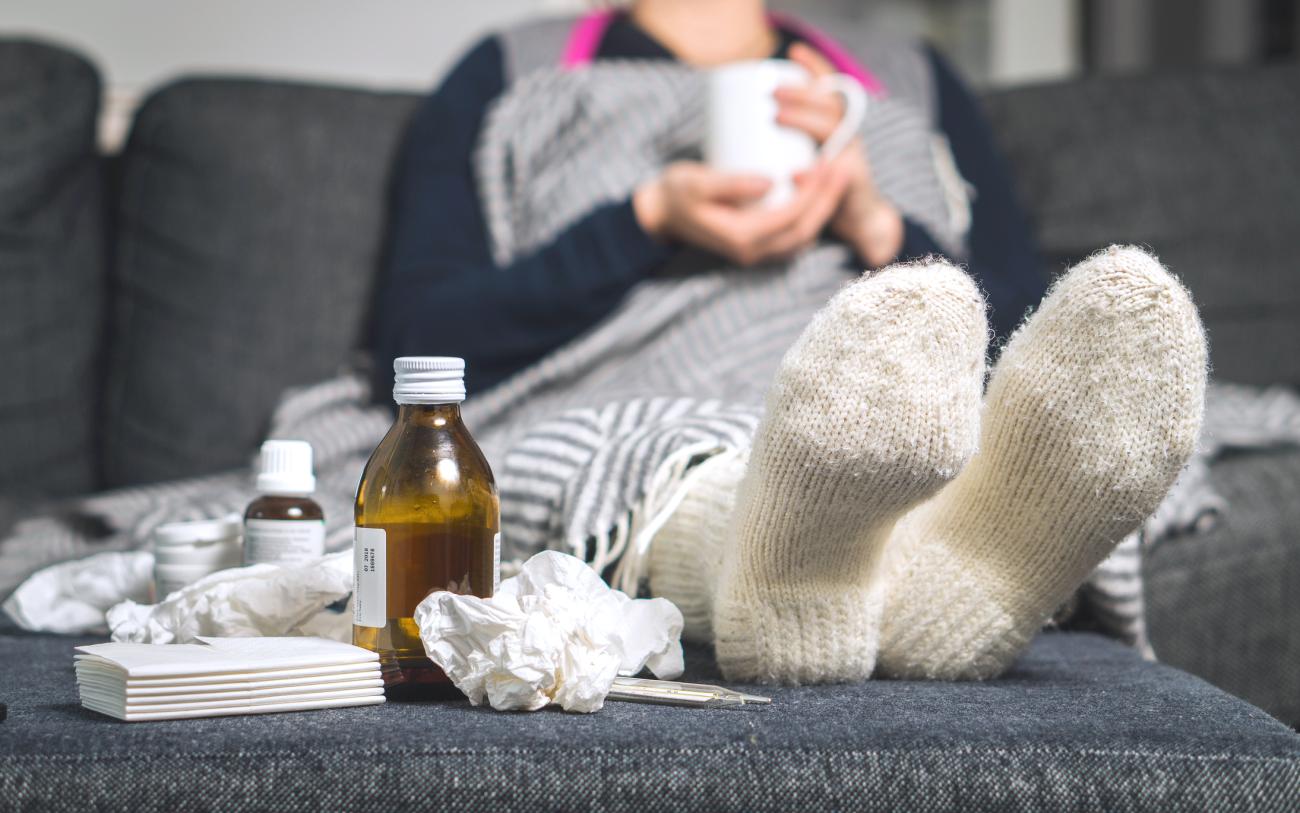
Our respiratory expert shares advice on what can be done to protect yourself — and your loved ones — during flu season.
Influenza, commonly known as the flu, is an infection of the respiratory system caused by the influenza virus. Flu season is at its peak during the winter months between November and March, and symptoms can range from mild to severe. Vancouver Coastal Health Research Institute researcher Dr. Emily Brigham explains the importance of flu prevention and what measures individuals can take to protect themselves and others from spreading the virus.
Q: How is the flu transmitted, and who is at higher risk for developing complications?
A: Influenza is transmitted person-to-person, either through respiratory droplets, or by touching a surface that has flu virus on it and then touching the nose, mouth or eyes.
While anyone can contract the flu, some people are at higher risk of complications. This includes adults aged 65 and above and young children, specifically under the age of five years. Pregnant people are at a higher risk, as well as anybody with a chronic medical condition or a weakened immune system. There may be enhanced risk for people living with diabetes or people who are obese. There is also evidence that the rates of hospitalization due to flu are much higher for Indigenous Peoples. Enhanced resources for flu prevention, treatment, and care are warranted in each of these populations.
Q: What groups are more at risk for contracting the flu, and what specific precautions should they take?
A: Populations who are immunocompromised or immunosuppressed should take greater precautions to avoid flu infection, as their immune systems are less able to fend off the influenza virus. People who live, work, or spend time in indoor spaces with larger groups are also more likely to encounter the flu virus each year. This includes teachers and children in school as well as health care workers and adults in assisted living facilities. Individuals who have not received the flu vaccine are also at higher risk.
Individuals who live in rural communities or who have limited access to health care may need to work with their providers in advance to determine what steps they should take if they start to exhibit symptoms of the flu. Understanding whether you may be in one of those higher risk groups and getting a sense of the resources available to you if you do get sick is essential so that you and your family are prepared.
Q: I seem to get the flu almost every year. What are the most effective ways to avoid recurring infections?
A: Prevention really is key. Annual flu vaccines are highly recommended — not only are vaccines the best way to reduce the risk of catching the flu, but they also reduce the likelihood of developing serious illness if you do contract the virus. Protecting yourself also reduces the amount of flu circulating in your community, which protects others from the disease.
Many of the recommendations we applied during the COVID-19 pandemic can be applied to flu prevention. Frequent handwashing is important, especially before eating or touching your face. Regularly cleaning high-touch surfaces during flu season can also help to prevent disease transmission. And of course, if you are feeling ill, consider staying at home. Wearing a well-constructed, well-fitting mask in indoor spaces can reduce the risk of getting the flu as well, and is something to consider especially among those who are at higher risk.
Q: What are some healthy habits to adopt during flu season to improve my respiratory health?
A: Try to keep your immune system functioning in tip top shape to maintain good health. This includes exercising when you are able to, making sure you are getting good rest, eating a well-rounded diet and limiting alcohol intake.
Connect with a health care provider about your health to make sure you have had all the recommended age-appropriate health screenings and that any chronic medical conditions are identified and are optimally managed. Take your prescribed medications regularly. If you have asthma or chronic obstructive pulmonary disease, work with your clinician to fill out an action plan.
There is evidence that smoking and air pollution can impact the body’s ability to fight off respiratory viruses. If you smoke and have been thinking about quitting, talk to your doctor or pharmacist about medications and other strategies to help you quit.
Q: Can having the flu lead to long-term effects on respiratory health? What can I do to expedite recovery?
A: For most people, getting the flu will not have any lasting effects on their respiratory health. However, for individuals with preexisting conditions and in some other very rare cases, the flu can potentially trigger the immune system to cause inflammation and more chronic scarring in the lungs. The flu can sometimes lead to secondary bacterial pneumonia as well as ear and sinus infections.
For individuals who are relatively healthy but who contract the flu, the healing process can be helped along by rest, hydration, staying at home and avoiding alcohol intake. However, if your fever is not going away, or you are experiencing confusion, severe headache or stiff neck, shortness of breath or other concerning signs of symptoms, do not hesitate to seek care as you may need further treatment.
Q: Are there any new treatments for individuals with chronic respiratory conditions during flu season?
A: Although flu vaccines are not new, each year they are tailored to what we predict the dominant flu strains will be. That is part of the reason why it is so important to boost your immune system each year.
For those at higher risk of complications from flu, there are antiviral medications available through your doctor that may reduce illness severity and duration of illness. These medications tend to work best within the first 2 days of symptoms and are not a substitution for the annual flu vaccine.
In non-emergent settings, 8-1-1 remains a good option for more information and connection with a nurse, and HealthLinkBC has a wealth of information and resources for patients who want to learn more.



